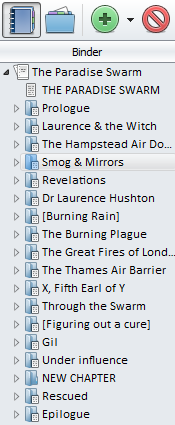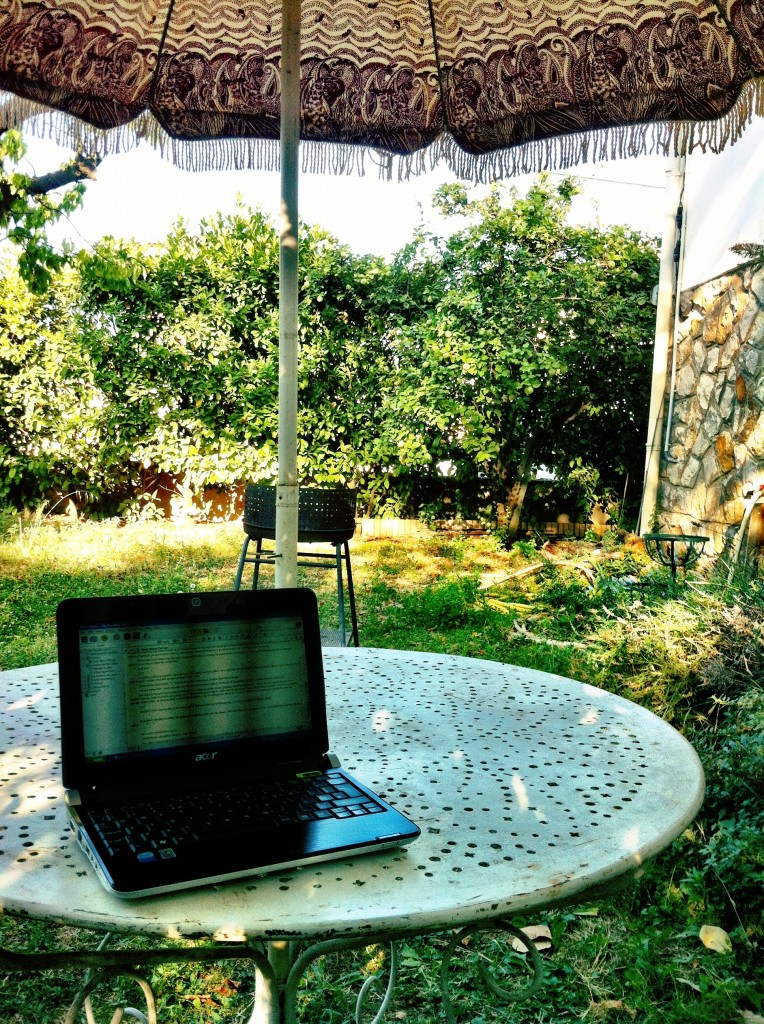The first time I threw together the words ‘naturalist’, ‘plant swarms’, ‘secrecy’ and ‘upcoming disaster’ in a notebook is dated June 18th, 2011. I’ve considered The Paradise Swarm my main work in progress since then. Meaning that at this point, I’ve been working on it for over a year.
And I realise that in that year, I haven’t accomplished that much story-wise. I have done a whole lot of planning, spent a lot of time world-building in the vaguest terms and written a lot of words that got thrown out, but I realised there still wasn’t much of a plot. I had cool scene ideas, but not a great grip on characters, nor a strong thread around which to weave the story.
Then last week, @TheJonFoulds and I sat down and poked at the holes in the plot and characters with a stick. I can come up with ideas all right on my own, but there is nothing that works better for me than bouncing ideas off of someone else. Especially someone who has an annoying knack for spotting things I did wrong, and a very good instinct for story structure. He also likes being needlessly cruel to his characters (and sadly, mine), which does raise the stakes.
 I had to put my foot down at some points, because some of his suggestions simply clashed with who the characters I created fundamentally were, but most of the advice was invaluable. Two hours after we started with ‘So what *does* your main character want most of all?’, we had re-plotted the story from start to finish.
I had to put my foot down at some points, because some of his suggestions simply clashed with who the characters I created fundamentally were, but most of the advice was invaluable. Two hours after we started with ‘So what *does* your main character want most of all?’, we had re-plotted the story from start to finish.
I now know what will happen past Chapter Three, which is a good thing because I’m writing Chapter Three right now. I’ve also been able to put down a whole bunch of new chapters and scenes in my Scrivener file, so that it actually looks like I’m working on something substantial. I love how my Scrivener file looks now: like I’m going somewhere with this!


